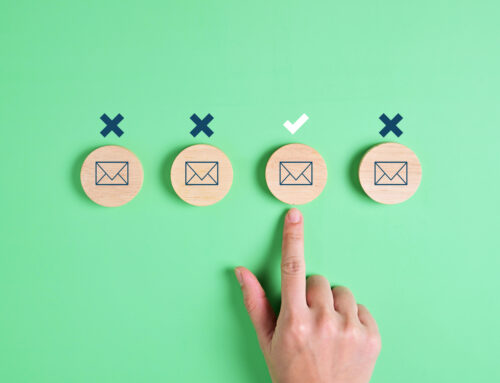Sometimes it’s hard to know whether you are doing the right thing or not, or where to stand in that big gray area. Take nonprofit emailing, for example.
There’s the CAN-SPAM law, but its application in specific situations is often confusing and subject to interpretation. There are “best practices” that various experts share, but it’s easy to find plenty of inconsistencies and conflicting advice online, and each bulk emailer seems to have its own rules. There’s what “everyone else” is doing, which may or may not reflect the law or best practices!
So what’s a nonprofit to do?
Take this specific case emailed to me for advice last week (with identifying information removed by request):
“We’re a politically focused nonprofit think tank, and we work to improve bipartisanship in DC (a herculean task!) We host many events aimed at bringing both sides together to work on various policy issues, sometimes working directly with congressional committees or offices. We regularly email congressional staffers with event invitations, relevant policy information updates, etc. We obtain the congressional data from a vendor that specializes in providing congressional directories – there are numerous such vendors in this area.
We are NOT fundraising or selling anything as we do not charge admission for our events. We are communicating with congressional staffers about specific policy issues that they deal with.
The problem is we are purchasing the congressional contact information and these contacts did not opt-in. Many of these staffers attend our events and provide us with their contact information, but still do not meet the definition of opting-in (at least not until after-the-fact).
It wasn’t until we began planning a switch from our current bulk email vendor to a new one that we realized this was a problem. I spoke with a representative from the new company we are considering and explained our situation, but they were adamant that what we were doing (buying the directory and emailing to it) is a big no-no. Further checking revealed that many bulk email vendors have the same policy.
So, we need some help to sort this out.
1. Is what we are doing a violation of the CAN-SPAM law?
2. If we are okay with CAN-SPAM but still in conflict with permission-based restrictions – what are our options for bulk email?
3. How do other groups who communicate with Congress deal with the opt-in situation?
4. Is there some other aspect to this situation that I’m overlooking?”
I’m no CAN-SPAM expert, but here’s what I would say:
Most of CAN-SPAM doesn’t actually deal with opt-in, but rather what’s actually in the email and opt-out.
It’s also confusing when you work in the political arena, because “political email” is exempted from CAN-SPAM (naturally, the pols give themselves a loophole!). We end up seeing lots of organizations that are not technically campaigns or not sending what is really “political” email, but who are heavily involved in the political arena, doing all kinds of list swaps, etc. that might be illegal, and are definitely not “best practice.”
In this case, it seems like the permission-based opt-in best practices that many bulk email companies are enforcing — and not the law itself — is what’s tripping up this group.
To get to “single opt-in” many people rely on the “existing business relationship” theory, where it’s OK to email someone if you already have a business relationship with them. I bet many of the groups in this situation would argue that because their mission statements are about working with this narrowly defined and limited audience (congressional staffers), they have an automatic business relationship. This would be the “but that’s what everyone else does” argument.
There seems to be quite a bit of disagreement about the “existing business relationship” theory, however, and what really constitutes a relationship. In this situation, would someone have to attend an event BEFORE getting on the email list, for example?
And that’s just single opt-in . . . getting to double opt-in would obviously require an individual to confirm his or her email address. Some of the bulk email companies will allow a single opt-in list, but send out those emails on a lower-quality server, seriously affecting the how many actually get delivered, while reserving their “high quality” IP addresses for double opt-in email. Some won’t allow lists that have been rented or purchased at all, regardless of what those renting out the lists say about the opt-in status of the list.
What’s black and white here, where is the gray area, and where should this group stand? What would you do?
Can you share your experiences and thoughts in the comments? I’ll also ask some of the big email companies to weigh in too.







